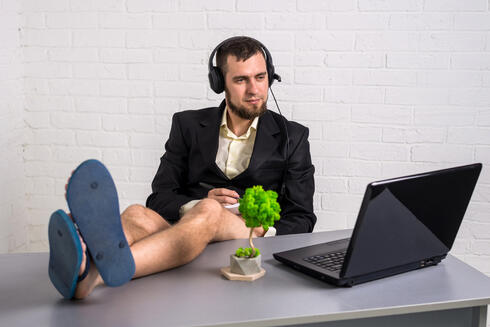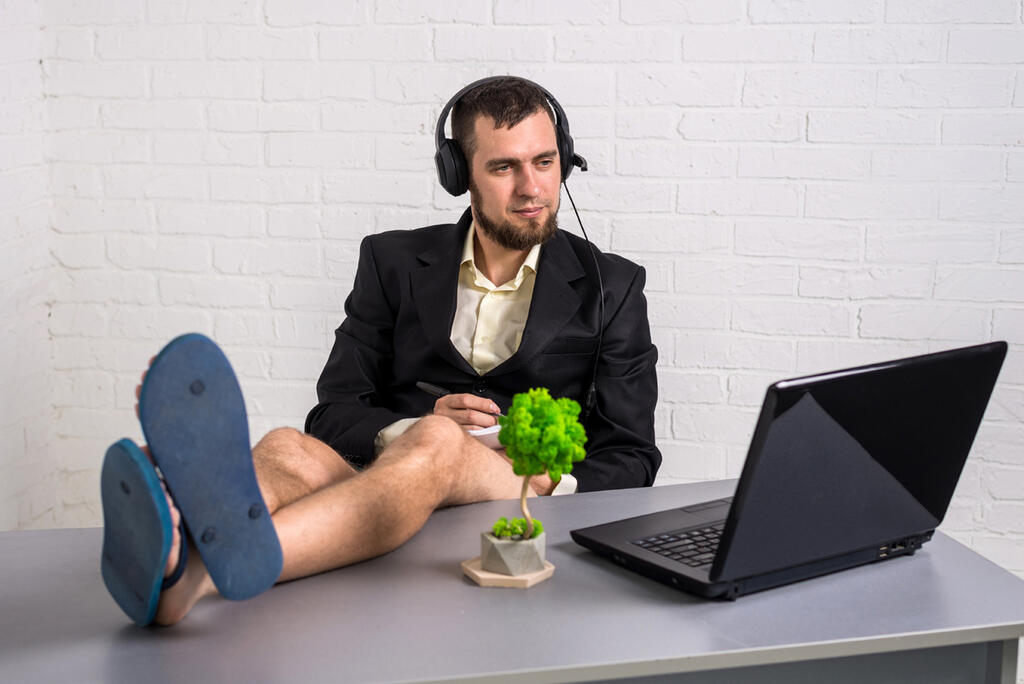
Round B
Bye-bye hybrid work? Not so fast
If the global pandemic has taught us anything, it’s that the way we used to work might not have been the best way
"Remote work", "hybrid work model", "quiet quitting", and a host of new concepts have become commonplace since the outbreak of the Covid pandemic, all of them indicate a break in the traditional work framework in favor of flexibility and adaptation to the personal work style of each employee. Changes by their nature require adaptation time, and along with their advantages they also have costs. Not everyone succeeds in adapting, processes need to change and it takes time to mobilize everyone to adopt new patterns. For us as managers, this poses a great challenge and many voices are heard accusing the new generation of workers of laziness and shallowness. On the face of it, this is not surprising: each generation tends to accuse the next generation of superficiality and embraces the waves of nostalgia for the values, sacrifice and contribution they represent compared to it.
These new trends are not exclusive to the high-tech industry, but as usual we are at the cutting edge. On the face of it, high-tech companies were quick to adopt new patterns, to get used to the new patterns and also to spread firm statements that the new reality is an expression of the organization's ideology and values. Conglomerates like Apple and Google have announced policies that allow and even encourage remote work, many startups have been established whose products support remote work, and everyone has sworn that since they stopped coming to the office their productivity is on a constant upward trend. The euphoria subsided after a while, and now the direction of the winds has changed. Many companies have limited or completely stopped remote work, as those who hailed the advantages of the hybrid model have discovered that beyond short-term enthusiasm this work model also has many disadvantages in the medium / long term, and the employees also admit in many cases that they miss meeting coworkers face-to-face and that they feel less like paying for meals themselves or having their travel expenses taken off their pay check.
The change in work habits did not result only from the constraints of the lockdown, but began even earlier with the establishment of companies based on remote work (for example, Automatic, Zapier, and Buffer), and the recognition of many employees that out of ten hours in which their bottoms sit on a chair in front of a monitor, only a small part of the time is really well used. These changes express not only a new concept of productivity, but also more comprehensive social attitudes. The central narrative of Western society is based on capitalism and the constant pursuit of self-fulfillment through economic well-being and increased production, and this narrative is beginning to tire. People are beginning to despair of the disproportionate relationship between the amount of work hours and the effort they invest and their standard of living, which even at a high level of income does not allow them the comfortable life they aspired to. Others who have reached financial well-being were surprised to find that it is less rewarding than how beautiful they are photographed on Instagram and trends such as mindfulness and meditation have helped many people understand that peace of mind comes before the lust for money.
When our employees tell us that they don't want to come to the office every day, many managers scream that it means work is less important to them. The truth? It's true, and it's also completely justified. In recent decades, we have all drifted into hysterical work panic and a mad race for accelerated growth, and not only does this come at the expense of peace of mind and well-being, but it is also not really necessary and effective. Of the many long hours when the light is on in our designed offices, how many of them are really used properly? A culture has developed in which it is "unpleasant" to leave work before it gets dark (at least in the summer, in the winter it gets dark in the middle of the day anyway), but what is the relationship between the time an employee spends in the office and the time they are efficient and productive? And maybe an employee who maintains a healthy and balanced lifestyle will ultimately be sharper, more focused and more efficient than the one who "kills themself" for the company and works around the clock? The demand coming from workers for a healthier balance between work and personal life is not a sign of laziness or shallowness, but rather a challenge to the existing social order that has grown out of control.
As a manager, adapting to new work patterns is very challenging. For a quarter of a century I have specialized in managing teamwork in a certain format, and suddenly I am required to manage under completely different conditions. On top of that, I got used to managing people who are 100 percent committed to the task, ready to work around the clock and always put the work first. This is the mentality we grew up with, and our work patterns and management habits developed around it. Getting used to a world where your employees are driven by curiosity, striving for self-fulfillment and balance in their lives is difficult and requires us to get out of our comfort zone, adopt new habits and return to feeling like novices in a threatening and unfamiliar world. But this is our duty as managers because in order to produce in a new generation of employees the value we expect them to create for the organization, we are required to accept their scale of values. This means working less from the office, and in general - working less. Prioritize in a smarter manner and instead of firing in all directions - choose carefully what to invest in and be more focused. We got used to juggling a lot of balls in the air at once because we want to conquer the world, and quickly - but in practice, only a small part of all our activities mature. So in an era where people work less and more independently, it is necessary to invest in prioritization, more precise definitions and closer monitoring of performance.
So instead of protesting a generation of lazy people and bragging about how in our youth we slept at our desks and showered in the sink in the hallway so as not to waste precious work time, it's worth learning from them that staying day and night in the office is not necessarily beneficial and that this no longer impresses anyone.
Shaul Olmert is a serial entrepreneur and the co-founder and CEO of mobile app developer Piggy. He formerly founded interactive content company Playbuzz Ltd. You can find his previous columns here.
First published: 08:42, 02.11.22














